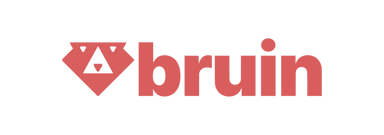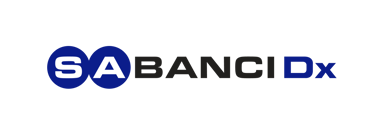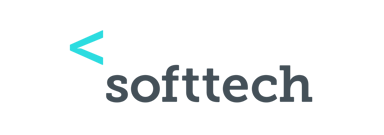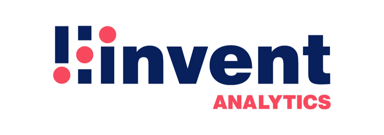
15 Talent Acquisition Specialist Interview Questions for Recruiters
Interview questions to ask a talent acquisition specialist play an important role in evaluating the interviewee’s knowledge of recruiting, screening, and selecting the most appropriate candidates, as well as their ability to provide a good candidate experience throughout the process of hiring.
Nevertheless, what are the questions to ask a talent acquisition specialist during an interview?
This blog content will cover why talent acquisition is important, what a talent acquisition specialist is and what their roles are, and finally fifteen talent acquisition specialist interview questions for recruiters.

Why Is Talent Acquisition Important?
Talent acquisition involves finding and hiring the correct people for the right jobs. It entails planning, sourcing, interviewing, and choosing individuals compatible with the organization's goals and culture. This talent acquisition process helps to create robust and productive teams and foster long-term business growth.
Filling open positions by finding top candidates is only one aspect of talent acquisition in today's competitive business world. It is a strategic function that concentrates on developing a solid talent pipeline while preserving a competitive edge.
Organizations can also use AI and data-driven tools to attract talented employees more easily and customize the hiring experience.
A successful talent acquisition strategy can boost productivity, minimize hiring costs, and improve employee retention. Companies can adapt to change, innovate, and grow over time by employing and retaining the right employees.
Because of this, talent acquisition in a company is crucial to determining its performance and approach to the general business strategy.
What Is a Talent Acquisition Specialist?
A Talent Acquisition (TA) Specialist is an HR professional who identifies, draws in, and hires outstanding talent for an organization. Unlike typical recruiters, they approach workforce planning strategically, often coordinating hiring efforts with long-term company goals. They have a critical role in building effective employer branding and engaging the ideal candidates through efficient sourcing and communication strategies.
What Is the Role of a Talent Acquisition Specialist?
Here are the responsibilities of a talent acquisition specialist in general terms:
- Offering guidance on current trends of hiring in the job market.
- Developing long-term recruitment strategies that correspond with business aims.
- Creating job descriptions that are both legally compliant and clear.
- Establishing selection criteria for every stage of the hiring process.
- Sourcing suitable candidates with the help of social media, job boards, career fairs, and universities.
- Evaluating resumes to select the best candidate.
- Giving unbiased suggestions to hiring managers following job requirements.
- Making preparation and coordination of the interview by using the most appropriate questions.
- Assisting in developing competitive compensation packages.
- Tracking and reporting on the candidate experience to enhance the hiring process.
- Promoting employer branding to draw in the best talents.
- Using an Applicant Tracking System (ATS), such as Hirex with world-class UX to make the recruitment process more effective and organized.

Talent Acquisition Specialist Interview Questions
A recruiter's preparation for questions to ask a talent acquisition specialist is significant to complete the process of hiring most effectively and quickly. Here are the talent acquisition specialist interview questions and answers (with what they look for) that will help organizations work with the best professionals:
1. Can you explain how you go about creating a recruitment strategy?
Purpose: To learn how the candidate plans to hire considering business needs. Example Answer: “I begin by agreeing with the hiring manager on the role's objective, team requirements, and success factors. Then I look at market data, analyze past hiring results, and develop a sourcing strategy that incorporates sites such as LinkedIn, Glassdoor, niche job boards, and internal referrals. In addition, I set key performance indicators (KPIs) such as time-to-fill and hiring quality to track and make necessary adjustments.”
2. How do you analyze and evaluate candidates throughout the interview process?
Purpose: To assess the framework of evaluation and decision-making.
Example Answer: "I ask a combination of situational and behavioral questions in an organized interview format. In accordance with the job description and the company's values, I evaluate both soft and technical skills. I also use numerous stakeholders as needed to avoid bias and acquire different opinions."
3. How do you develop and keep positive relationships with hiring managers?
Purpose: To evaluate communication and collaboration skills.
Example Answer: “I view hiring managers as partners. I set clear goals from the start, give regular updates, and encourage feedback at all stages. My goal is to comprehend their communication style and adjust as necessary. This trust expedites the hiring process and facilitates decision-making.”
4. How do you guarantee a good candidate experience during the recruitment process?
Purpose: To comprehend how they handle employer branding and candidate care.
Example Answer: “I keep everything open and honest, including expectations management, prompt feedback, and clear communication. I also customize outreach, value candidates' time, and ensure a smooth transition from application to offer. Even if an applicant is rejected, I make sure they feel appreciated and respected.”
5. How do you keep up with recruitment and talent acquisition trends?
Purpose: To assess adaptability skills and growth mindset.
Example Answer: “I connect with industry professionals on LinkedIn, read newsletters such as Recruiting Brainfood, and join webinars or local events. Additionally, I benchmark with my colleagues and try out new methods or tools, like async interviews or AI-based sourcing platforms.”
6. Describe a situation where you were under pressure to immediately fill multiple roles. What approach did you take?
Purpose: To comprehend setting priorities and managing time.
Example Answer: “We had to scale a new department and fill seven roles in the three weeks in my previous role. I prioritized roles according to their business impact, developed a detailed tracking sheet, and maintained contact with hiring managers on a daily basis. I also used our talent pipeline and fast-track high-potential individuals. We met the deadline without compromising quality.”
7. How do you make sure that hiring practices are inclusive and diverse?
Purpose: To evaluate the level of action and awareness around equitable hiring.
Example Answer: “I create inclusive job descriptions with neutral language, use several sourcing methods, and push for diverse interview panels. I also train hiring managers about unconscious prejudice and make sure evaluations are designed to eliminate subjective judgments.”
8. Can you provide an example of a difficult hiring challenge you faced and how you overcame it?
Purpose: To gauge problem-solving skills.
Example Answer: “I had difficulty filling a senior software developer role with niche requirements. I broadened my sourcing to international markets, contacted passive candidates on LinkedIn, and collaborated with the hiring manager to reframe 'must-have' vs. 'nice-to-have' requirements. Finally, we hired an excellent candidate, who has now been promoted.”
9. How do you assess whether your recruitment efforts are successful?
Purpose: To evaluate data-driven thinking.
Example Answer: “I keep track of metrics such as time-to-fill, quality-of-hire, cost-per-hire, and candidate satisfaction. I additionally hold post-hire reviews with managers to analyze performance and gather feedback on the hiring process. This enables me to optimize strategies over the long run.”
10. What role does an applicant tracking system (ATS) play in your daily workflow?
Purpose: To assess process effectiveness and tool fluency.
Example Answer: “I use the ATS to handle candidate pipelines, automate conversations, and set up interviews efficiently. In addition, I offer reports for leadership, maintain compliance documentation, and use tagging for talent pooling.”
11. What methods do you employ while looking for passive candidates?
Purpose: To determine how creative the sourcing strategy is.
Example Answer: “I customize outreach messages, conduct Boolean searches on LinkedIn, join industry events, and review promising applicants from previous positions. I also create talent maps and maintain a warm pipeline for future opportunities.”
12. How do you make sure that job descriptions are in line with real business needs?
Purpose: To understand how they clarify role expectations.
Example Answer: "I first connect with the hiring manager to talk about team requirements, KPIs, and the scope of the role. Then, I develop or modify the job description to align with actual requirements rather than only boilerplate information. We examine and approve it jointly."
13. How do you assess the cultural fit of a candidate?
Purpose: To identify value alignment and soft skills.
Example Answer: “I inquire about values, conflict resolution, and desired work styles. Additionally, I pay attention to how they explain decision-making and teamwork. I then compare this information with the fundamental values and culture of our organization.”
14. Can you share your experience hiring for international or remote teams and how you handle the process, if any?
Purpose: To learn if they experimented with different team structures.
Example Answer: “Yes, I have recruited for entirely remote positions across time zones. I changed the interview schedule, utilized digital tools for managing assessments, and worked directly with local HR professionals when dealing with compliance and contracts.”
15. What steps have you taken to enhance your employer brand as a component of your recruiting strategy?
Purpose: To understand marketing-focused attitude and strategic thinking.
Example Answer: “I have collaborated with marketing to share employee experiences, boost our Glassdoor profile, and redesign the career website. I have also offered candidate experience surveys to highlight areas of brand perception enhancement.”
Conclusion
In this blog content, you have learned the importance of talent acquisition, TA Specialist meaning, the role of a talent acquisition specialist, and fifteen questions to ask in a talent acquisition interview for what purpose they were asked and example answers.
Hiring a talent acquisition specialist is significant for an organization and you can benefit from this guide as an employer, HR professional, or just someone interested in HR subjects. Besides, you can visit Hirex to read many more HR topics to advance your career!
Start Hiring With Our Free ATS!
HR teams from AXA, Mondelez, Mercedes… they love us! (no credit card required 🙂↔️)
Contents
Get a demo
- Quickly find top candidates with smart application management
- Improve team collaboration using built-in communication and workflows
- Offer a smooth candidate experience to strengthen your employer brand
- Count on 24/7 support for a hassle-free hiring process
- Quickly find top candidates with smart application management
- Improve team collaboration using built-in communication and workflows
- Offer a smooth candidate experience to strengthen your employer brand
- Count on 24/7 support for a hassle-free hiring process
"We truly felt the speed difference. Everything was smoother, and candidate feedback was much more positive. It made our jobs easier."

Trusted by 100+ teams
Get Informed,F.A.Q.
Revolutionize your hiring process with our transformative Applicant Tracking System (ATS.)
Suggested Blog Posts

How Much Time Does an ATS Save? ROI Guide 2026

Best ATS Systems for Irish Employers in 2026
















